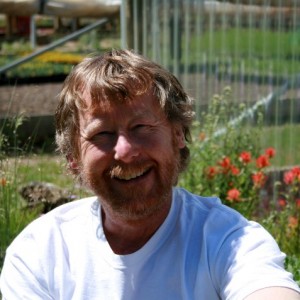 Rick’s background is quite varied. He’s originally from a small logging community in Oregon, and started backpacking and back-country skiing in the early 1970’s; well before it was popular. He has an undergraduate degree in Physical Anthropology, graduate work in Rural Sociology (a long story), and, as he describes it, is an “older-than-average” PhD candidate in the Horticulture department at Oregon State University. His work at OSU includes developing curriculum for an option in Restoration Horticulture and research into the application of Ecoregional classification systems and ecological principles in long-term municipal planning.
Rick’s background is quite varied. He’s originally from a small logging community in Oregon, and started backpacking and back-country skiing in the early 1970’s; well before it was popular. He has an undergraduate degree in Physical Anthropology, graduate work in Rural Sociology (a long story), and, as he describes it, is an “older-than-average” PhD candidate in the Horticulture department at Oregon State University. His work at OSU includes developing curriculum for an option in Restoration Horticulture and research into the application of Ecoregional classification systems and ecological principles in long-term municipal planning.
Rick’s professional experience includes work as a botanist for potential Wilderness areas under RARE II, an Archaeologist and Ecologist for the Forest Service in the northwest and Midwest, an Environmental Scientist for engineering firms in the Southwest, and, for the past 14 years, as owner and President of WinterCreek Restoration; a native plant propagation nursery and restoration/landscape company focusing on high desert environments of the inland west.
Most of Rich’s work has focused on various aspects of environmental management. He’s completed a number of unique projects including independent survey of the blast zone and backcountry areas at Mount St. Helens a couple of years after the eruption, an inventory and assessment of isolated historic mining cabins in designed Wilderness areas in central Washington, and congressional studies of potential Wild and Scenic rivers in Michigan. His experiences also include leading a team studying presettlement conditions in the upper Midwest as part of the early work in Ecoregion classification and leading a group of Archaeologists in a survey of relatively remote desert environments in south central Oregon.
Rick has worked and lived in some of the more remote areas of the country and has always been a strong proponent of wild areas; whether or not they’re congressionally designated. As he describes it, his work “has often given me the enjoyment of being alone in remote areas for long periods of time. It’s an environment I thoroughly enjoy and am comfortable with. I look forward to traveling to the Arctic Refuge with this amazing group of people. It’s going to be fantastic learning opportunity, and as I told Jeff, being in a truly wild place is something I’ve always wanted to experience.”
no comments